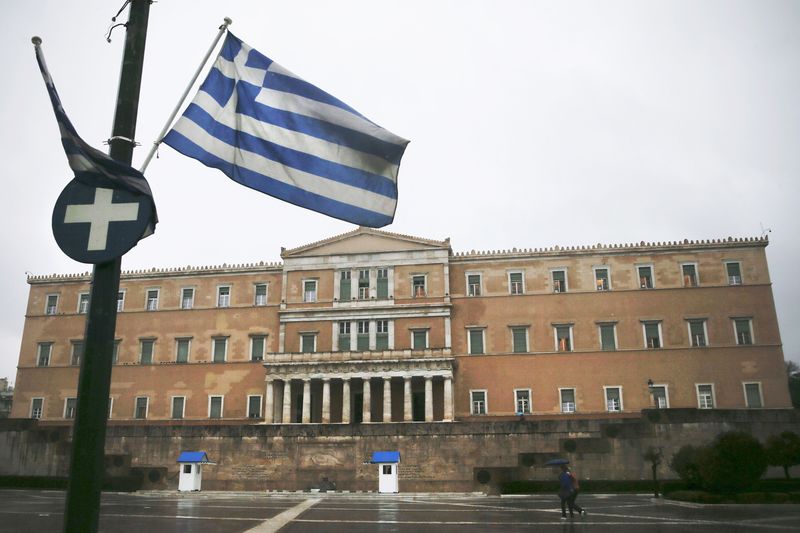(Bloomberg) -- Euro-area nations and the International Monetary Fund failed to resolve their differences over Greek debt relief ahead of a meeting of finance ministers in Brussels, according to four officials familiar with the discussions.
The sides reached an impasse over the length of extensions to be granted on bailout loans and what conditions should be attached to such easing, the officials said, adding that discussions will likely continue on the sidelines of a Group of Seven finance ministers’ meeting next week in Whistler, Canada. The meeting of the so-called “Washington Group” to discuss Greek debt relief in Brussels on Thursday was constructive, and there is some momentum to eventually reach a compromise, one of the officials said.
With the euro area seeking to wrap up the Greek bailout by late June, hardline countries led by Germany want the IMF’s seal of approval as evidence that their medicine has succeeded in putting the country’s finances back on a sustainable path. While the IMF’s cash isn’t needed, the activation of its dormant Greek credit line would send a message to markets that one of the most respected financial institutions considers Greece’s debt to be sustainable.
The IMF, with support from the European Central Bank and France, is arguing that debt relief on Greece’s 320 billion euros ($375 billion) of debt should kick in as soon as the rescue program ends with no strings attached in order to win over investors. Germany wants the measures to be phased in over time, and only if Greece meets further conditions.
Extension Quarrel
Bailout auditors and the IMF advocate an upfront extension on some Greek bailout loans by eight years or more; the buyback of outstanding IMF loans by the euro area’s crisis fighting fund; and the return of the profits that euro-area central banks made on their Greek bond portfolios to Greece, two of the officials said.
Northern European countries are only willing to consider a very short upfront extension on some bailout loans, and tie any further measures to policy conditions. They also want a so-called “French mechanism” that would further ease Greece’s repayment profile in the future following approval by national parliaments and so long as Greece sticks to its economic reforms.
“We’re not there yet,” Slovak Finance Minister Peter Kazimir said in a twitter post after the meeting of the Washington Group. The IMF situation is still developing, he said. “We will see.”
(Updates with details on the disagreement throughout.)
